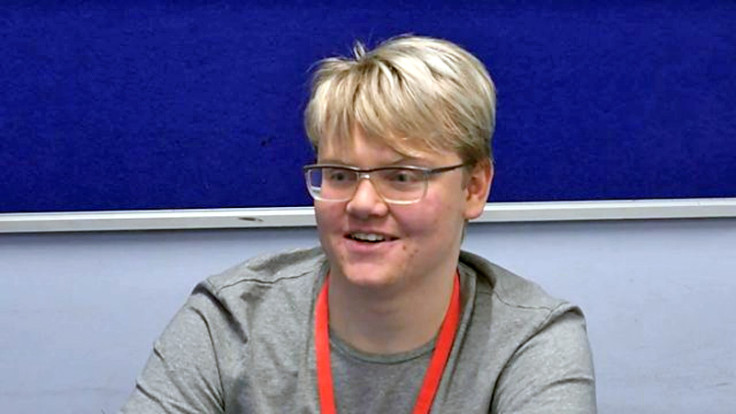UK teen outsmarts Nasa geniuses by spotting data errors undetected for months
Seventeen-year-old Miles Solomon informed Nasa scientists that "negative energy" doesn't exist.

A British teenager has helped Nasa by pointing out that faulty sensors on the International Space Station (ISS) were causing errors in the space agency's data.
Miles Solomon, 17, is studying physics, chemistry and further maths A levels at Tapton Secondary School in Sheffield, and his school is taking part in a project run by the Institute for Research in Schools (IRIS) that gives students the chance to work on real data collected by the ISS as it orbits the Earth.
Data science is a rising field whereby computers are automated to analyse huge amounts of informationto help provide insight into how people think, live and work. In the tech industry, this is known as "big data".
The ISS has microchip sensors plugged into laptops inside the station that take measurements every four seconds in order to monitor levels of radiation in space, as well as providing details about the sensor's longitude and latitude.
The students were provided with data, measured during the six-month period, that UK astronaut Tim Peake was in space from December 2015 to June 2016, and on examining the information, Solomon discovered that the sensors were recording negative readings.
"What we got given was a lot of spreadsheets, which is a lot more interesting than it sounds," Soloman told BBC Radio Four.
"We ordered the data into energy and we [saw that there were] really high bits. I went straight to the bottom of the list and I went to the lowest bits of energy there were.
"I noticed that where we should have had no energy – there was no radiation for those four seconds – it was actually showing minus one. And the first thing I thought was, well, you can't have negative energy."
Nasa missed errors for months
It is scientifically impossible for you to have "negative" energy, so Solomon told his teacher and they emailed Nasa some graphs Solomon had made.
Initially, the space agency responded that they were aware of the error – its experts thought that the sensors only glitched once or twice a year, but they were wrong.
"What we actually found and discovered was that they were happening multiple times a day, so very often," explained Solomon.
The faulty data had remained unnoticed by the scientists for eight months until Solomon contacted Nasa, and the space agency was grateful to receive the correction. The incident, however, highlights a real problem with big data, namely that huge amounts of data are being generated by the ISS all the time, but experts don't have enough time to work out whether that data is actually correct, or whether it's being skewed by faulty sensors.
IRIS is of course delighted, as projects like this have the potential to help bring science, technology, engineering and mathematics (STEM) subjects to life for young people.
IRIS director Professor Becky Parker told the BBC: "IRIS brings real scientific research into the hands of students no matter their background or the context of the school. The experience inspires them to become the next generation of scientists."
© Copyright IBTimes 2025. All rights reserved.






















